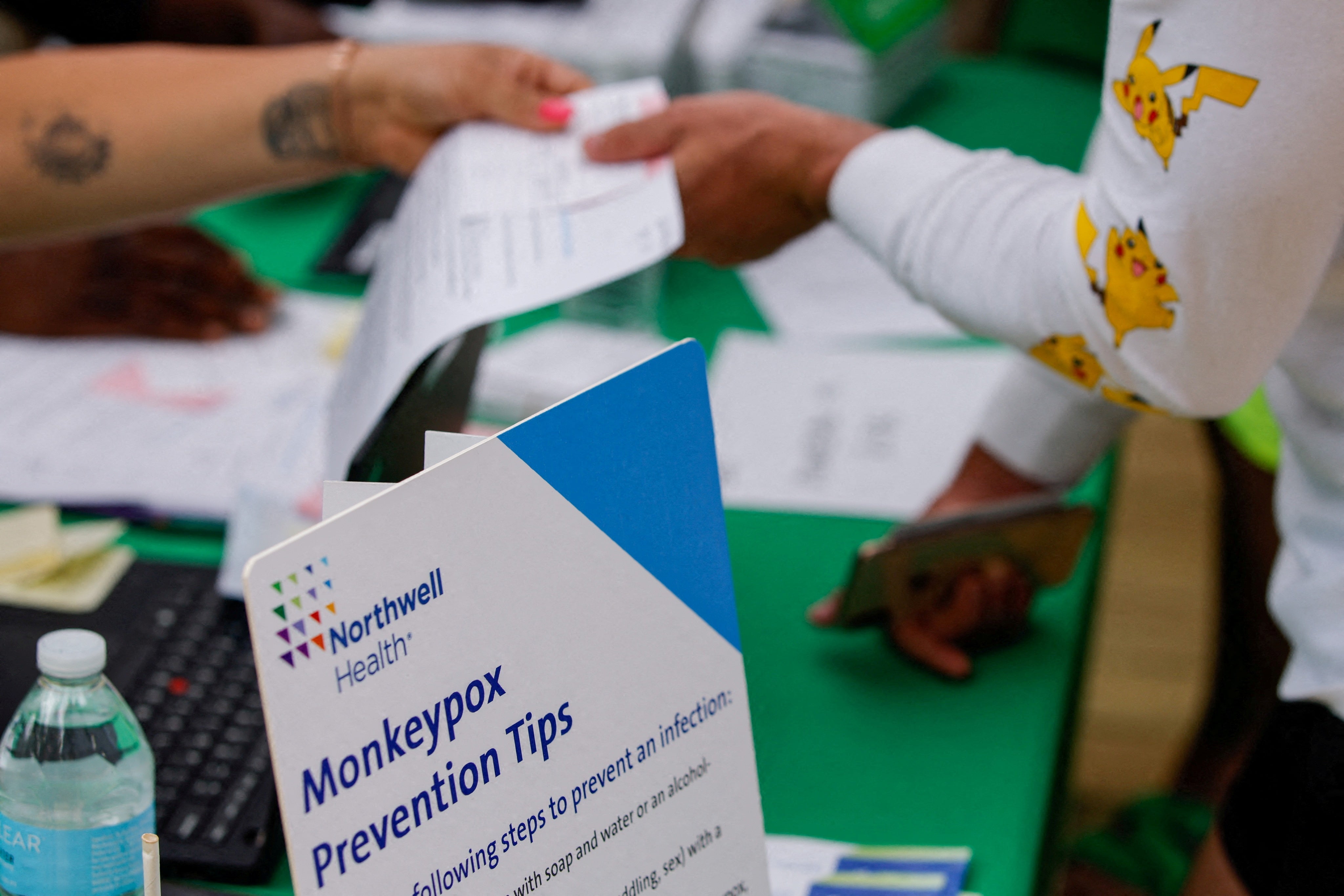Monkeypox: Virus can be spread through ‘any close physical contact’
Virus can potentially be transmitted through clothing and surfaces
Your support helps us to tell the story
From reproductive rights to climate change to Big Tech, The Independent is on the ground when the story is developing. Whether it's investigating the financials of Elon Musk's pro-Trump PAC or producing our latest documentary, 'The A Word', which shines a light on the American women fighting for reproductive rights, we know how important it is to parse out the facts from the messaging.
At such a critical moment in US history, we need reporters on the ground. Your donation allows us to keep sending journalists to speak to both sides of the story.
The Independent is trusted by Americans across the entire political spectrum. And unlike many other quality news outlets, we choose not to lock Americans out of our reporting and analysis with paywalls. We believe quality journalism should be available to everyone, paid for by those who can afford it.
Your support makes all the difference.Monkeypox can be spread through “any close physical contact”, doctors have warned as the number of confirmed cases continue to soar in the UK.
Experts found that the virus can be transmitted through large respiratory droplets and potentially even clothing and surfaces.
The warning came as part of a study led by researchers at Queen Mary University of London (QMUL), in which they identified new clinical symptoms of monkeypox infection.
They found that the new symptoms are similiar to sexually transmitted infections (STIs).
However, while sexual closeness is the most likely route of transmission, it is not the only means of contracting monkeypox.
The report published in The New England Journal of Medicine underlines that recognising the disease, contact tracing and advising people to isolate will be key components of the public health respons to slow the spread of infection.

As of 18 July, there were 2,137 confirmed cases in the UK, with 2,050 in England and the majority in London.
Dr John Thornhill, consultant physician in Sexual Health and HIV at Barts NHS Health Trust, said: “It is important to stress that monkeypox is not a sexually transmitted infection in the traditional sense; it can be acquired through any kind of close physical contact. However, our work suggests that most transmissions so far have been related to sexual activity - mainly, but not exclusively, amongst men who have sex with men.
“This research study increases our understanding of the ways it is spread and the groups in which it is spreading which will aid rapid identification of new cases and allow us to offer prevention strategies, such as vaccines, to those individuals at higher risk.”
The study also identified a new set of symptoms which are similar to those seen in sexually transmitted infections (STIs), such as genital lesions and sores on the mouth or anus.
Chloe Orkin, professor of HIV Medicine at QMUL said: “Viruses know no borders and monkeypox infections have now been described in 70 countries and in more than 13000 people.
“These particular symptoms can be severe and have led to hospital admissions so it is important to make a diagnosis.
“Expanding the case definition will help doctors more easily recognise the infection and so prevent people from passing it on.”
More commonly known symptoms of the virus are high temperature, a headache, muscle aches, backache, swollen glands, shivering and exhaustion according to the NHS.
The UK Health Security Agency (UKHSA) said this week that it had procured 100,000 more doses of an effective vaccine to tackle the rising number of monkeypox cases.




Join our commenting forum
Join thought-provoking conversations, follow other Independent readers and see their replies
Comments